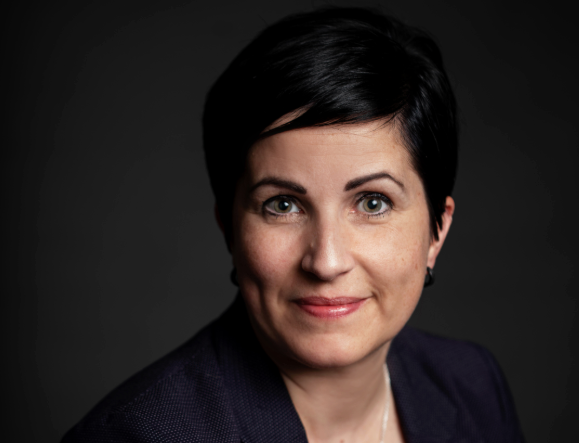The collection of old clothes and textiles could be the fabric needed to help build an addiction treatment facility in Barrie.
Cornerstone to Recovery is a Newmarket-based organization that began in 2004 and whose mission is "focused on supporting those impacted by addiction achieve emotional, physical and spiritual wellness."
"They've agreed to expand their treatment model of care to Barrie, with operating expenses coming from the revenue collected through a textile diversion program," which has been successful for several years in York Region, said Coun. Natalie Harris, who presented the item for discussion at Monday night's general committee meeting.
Cornerstone is fundraising to expand its program and build a $2-million women's addiction treatment facility, with an additional $1 million to operate over three years, said Harris, who added the organization has already met half of its goal.
There have been initial talks about a possible location, but Harris said nothing has been finalized.
Harris stressed that none of the facility would be funded through taxpayer dollars, adding a similar operation in Aurora has been running for 18 years under the same model.
She says it's time to bring a facility like this to Barrie, which has a dire drug problem.
"Barrie's opioid crisis is still taking lives at an alarming rate," Harris said. "And while the provision for a supervised consumption site (SCS) will save lives, as well, the application for (an SCS) is ultimately out of city council's hands and we do not know when this, if ever, will be approved."
Local health officials have been developing an application for an SCS in Barrie, which requires provincial approval and must include input from municipal politicians.
Coun. Mike McCann has previously called for more information from health officials on an SCS before he can get behind it, but says the Cornerstone idea is something he can support.
"It's clear to everyone how I feel about safe injection sites in our downtown and this is nothing like that," said McCann, who added he has been "overly impressed" by how Cornerstone manages its operations. "That is a machine that knows what they're doing. That is a machine that is going to help our city. That is a machine that is not going to cost taxpayers any dollars.
"I am definitely in support of this," he added.
If all went according to plan, Harris said the Cornerstone facility could open in early 2021. The goal would be to eventually have a facility for both men and women, as well as a clubhouse.
"Time is of the essence, of course, to get this textile bin collection up and running," she said.
Mayor Jeff Lehman called it "an incredible opportunity" and a "remarkable operation," but also stressed to council that the proposal is time-sensitive.
"The organization has some timelines and we have to work quickly if we want this to come to Barrie," he said.
City staff will investigate the possibility of allowing Cornerstone to place donation bins around Barrie on a "sole-sourced basis" and report back to general committee.
Sole source is allowing only one supplier to handle the goods or products.
Coun. Clare Riepma said he supports the idea of Cornerstone opening a facility in Barrie, but added he also has concerns in general about the proposal.
"I have a problem with two words and that is 'sole source'," Riepma said. "As a municipality, dealing with public money and infrastructure, we should almost never be dealing with sole source. I'm very concerned about that."
City treasurer Craig Millar said the municipality is bound by a procurement bylaw, but council can choose to override it.
"I wouldn't recommend it from a treasurer's point of view, but it is an option," Millar said.
Lehman clarified that it is not a procurement process or a contract, but rather that textile collection generates its own revenue. The city would simply be allowing the organization to place the bins in Barrie.
"In fact, it's a social enterprise," he said. "They make revenue off the collection."
Coun. Gary Harvey said council should support the Cornerstone proposal.
"We've already been criticized and ridiculed because of some of the other issues ... when it comes to the opioid crisis, and to think we're going to let a rehab centre walk away from us because of something like this (sole sourcing) I think would be totally foolish on our behalf," he said. "I hope that everybody around the table supports this."
Harris estimated that, if the textile collection plan is implemented, it would also help divert 2.5 million pounds of textiles and household items from the local landfill.
"This is over 1,100 metric tonnes which, with Barrie's tipping fees, will save the city and the taxpayers approximately $170,000 annually," she said. "That is just the tipping fees alone."
With limited capacity at the Ferndale Drive North landfill, Harris said textile collection would also help extend its lifespan while reducing greenhouse gases.
Riepma also had worries about the bins possibly becoming locations to drop off junk.
"If we can just be sure that doesn't happen, then I would be more comfortable with it," he said.
The Cornerstone bins are equipped with sensors that alert the organization once they are full, said Harris, who also added the people who collect the material are usually former clients, so it helps them get back into the community.
"Waste will still be dropped off in the bins, but Cornerstone actually separates the waste from the textiles and then diverts that properly to the landfill," she said.
Members of council supported the item unanimously.
City council next meets on March 23.



